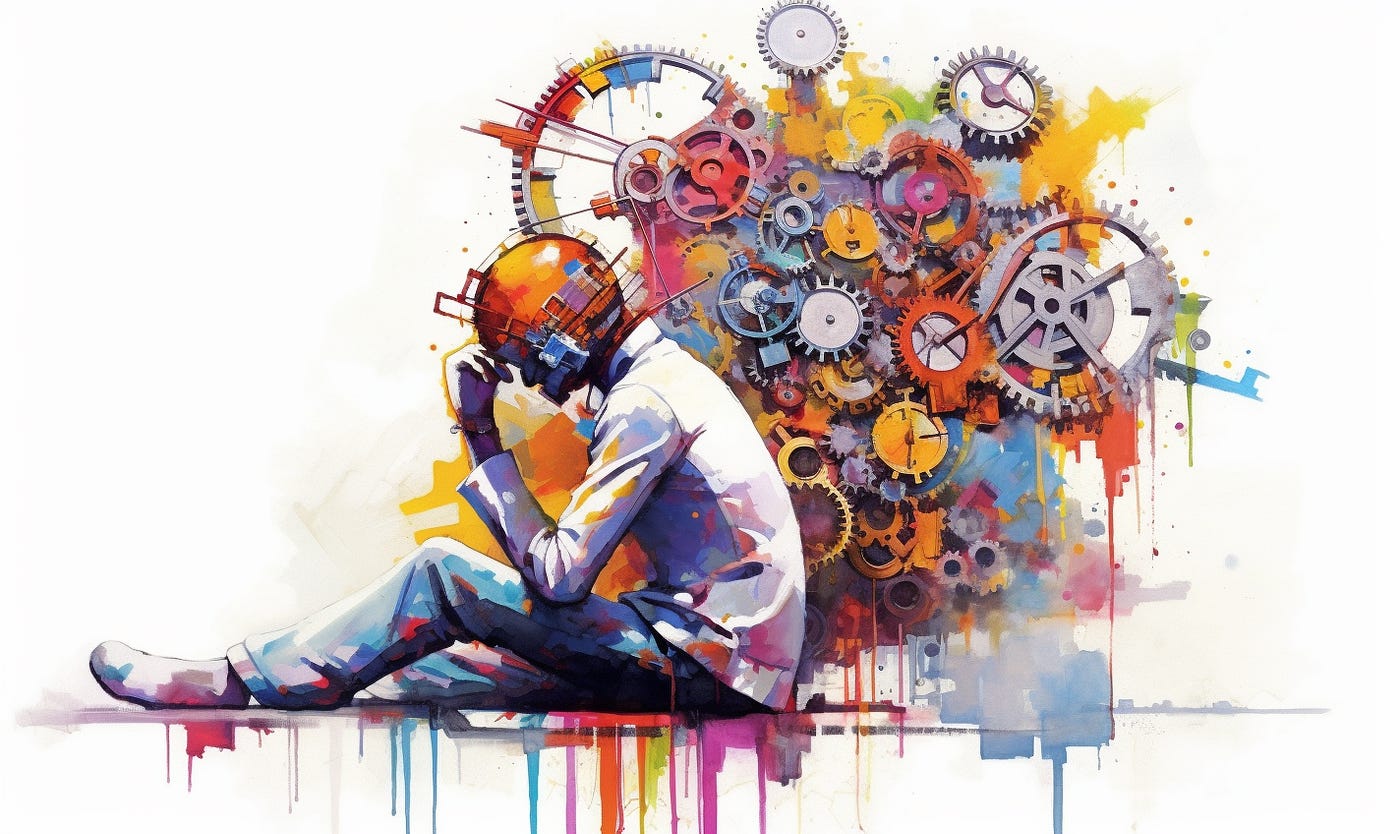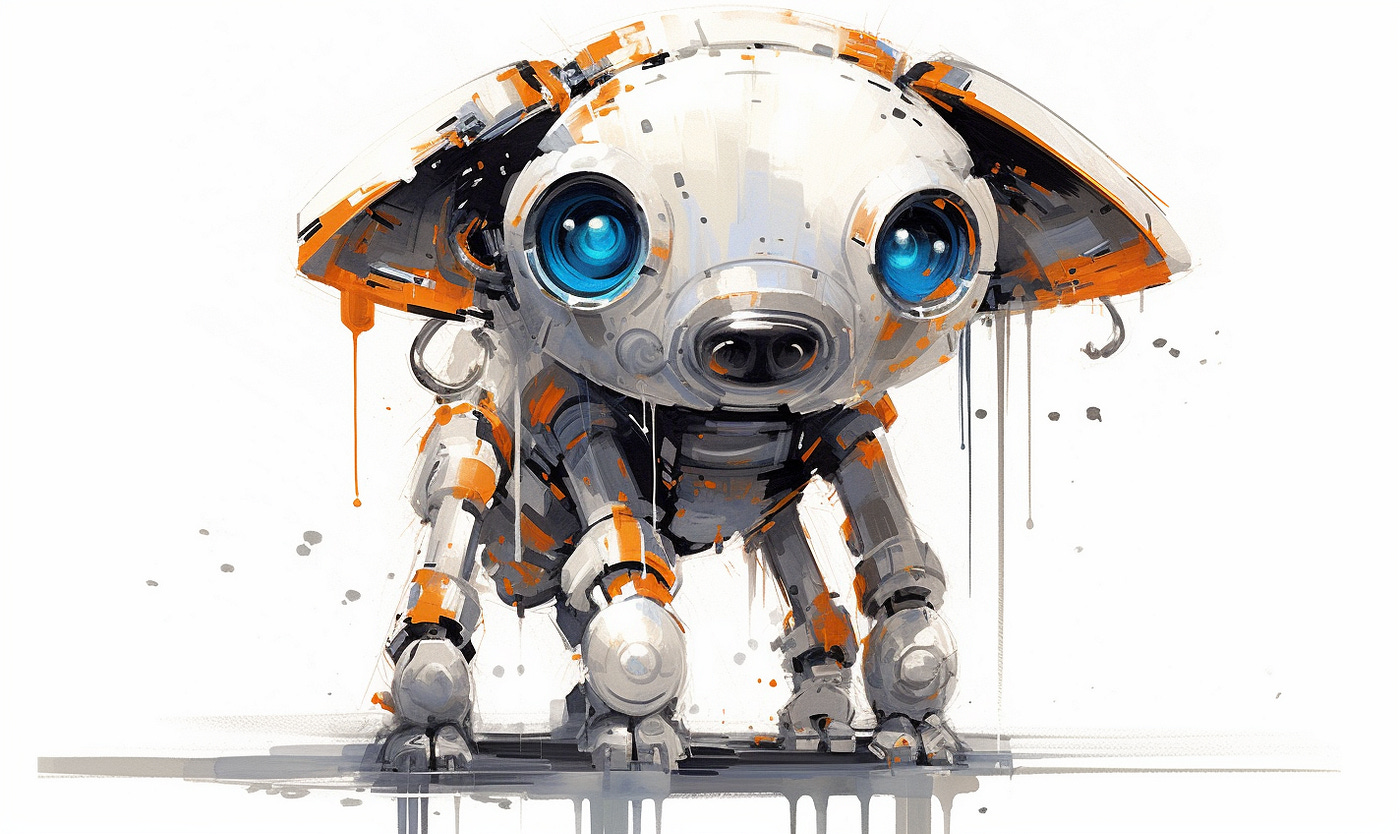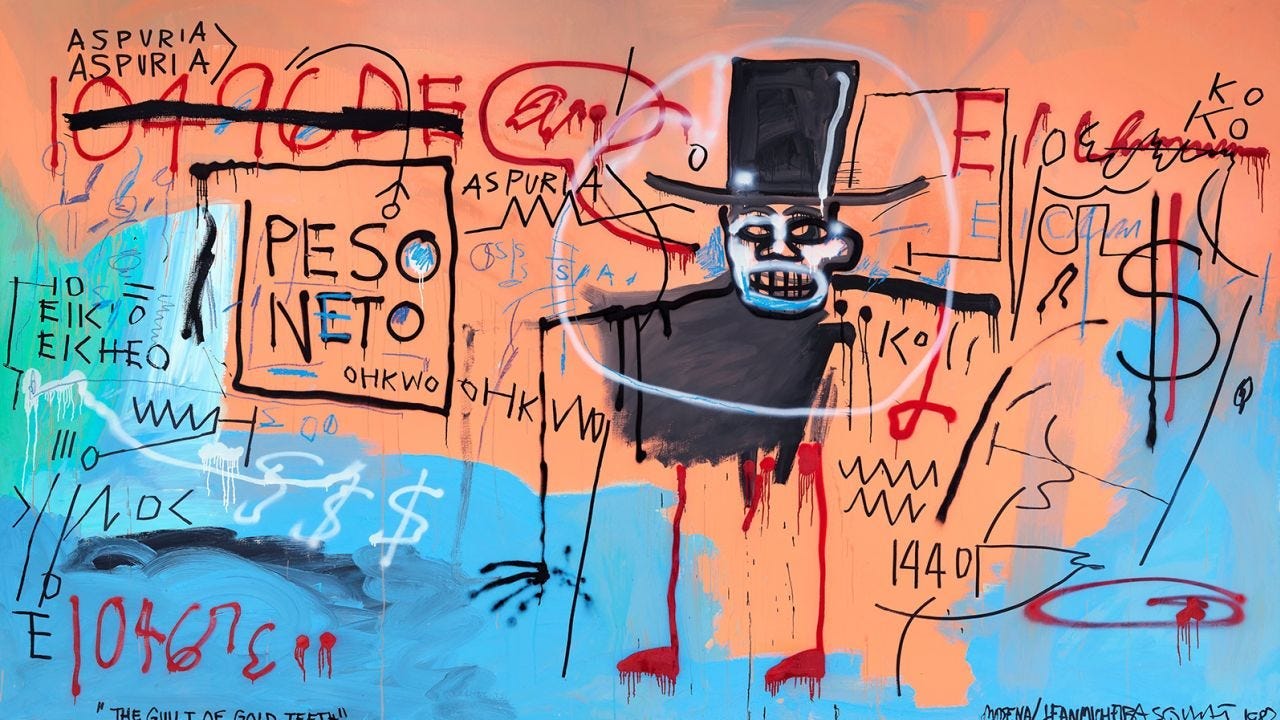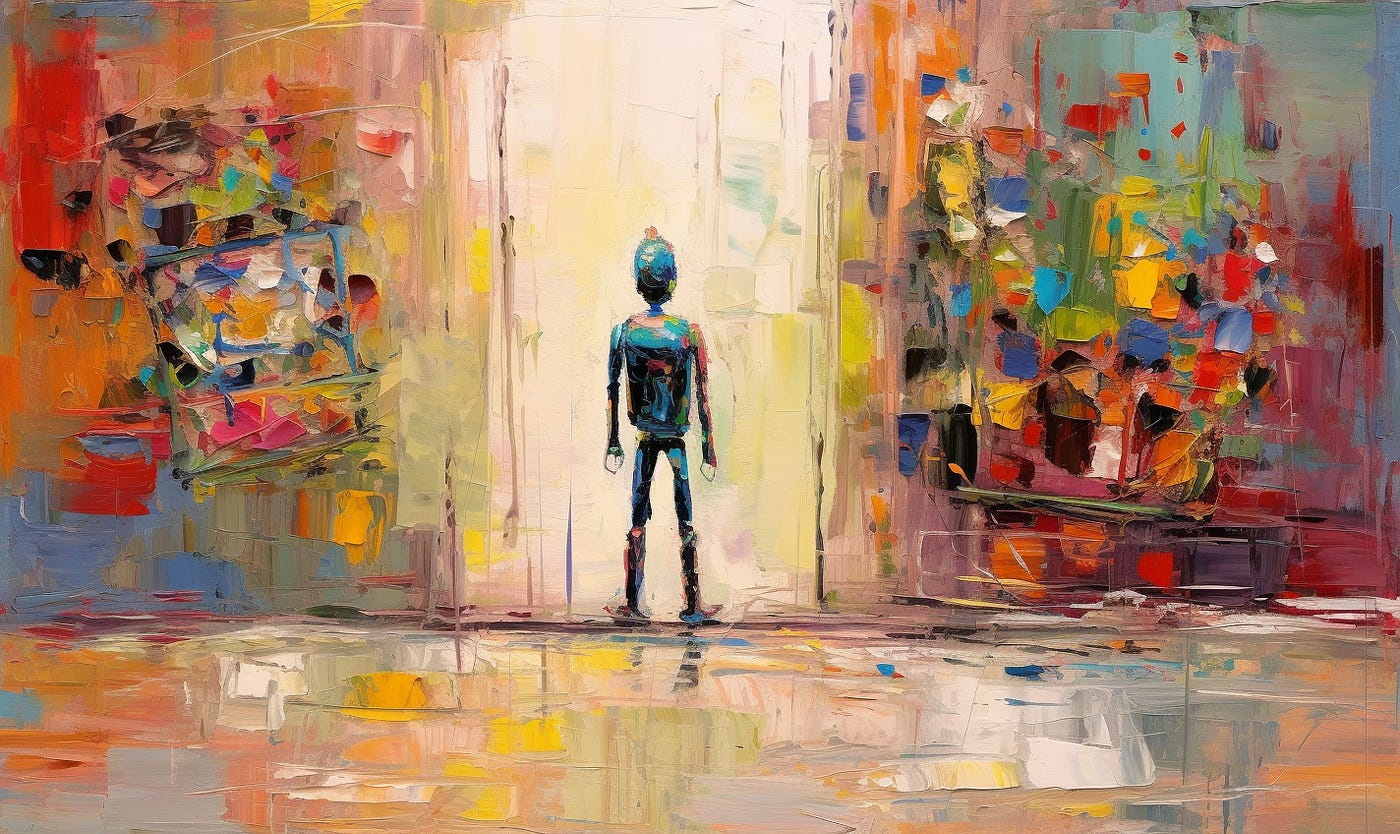AI as Artist: A Critical Paradox
How AI must learn to be stubbornly bad at art, if it’s ever going to be any good
I recently watched a biography about comedian George Carlin, and was struck by how his comedy went from good to great when he decided to abandon the successful formula of popular trends in comedy and found his own voice. He then continued to stick by his own unique voice as he fell out of fashion again, and then when the tides of popular opinion returned, it cemented his place as a legendary comic.
There’s also the popular, if exaggerated legend of Van Gogh — who sold few paintings in his day, and was generally overlooked by the mainstream art collectors of his day.
Pavlov’s RLHF
Today’s AI is dependent on Reinforcement Learning from Human Feedback (RLHF) — which is a long-winded way of saying:
The AI doggy doesn’t know he’s a good boy unless many humans pat it on the head
Oversimplification, of course, but there is some metric of goodness which is trained into the system. You can use subject-matter experts to train the AI, to have some kind of informed perspective on goodness, but as we’ve seen from the Van Gogh example, goodness is highly contextualized by the contemporary views that don’t necessarily stand the test of time.
Whose Good is Good Enough?
My wife has created a couple of short films, which I’ve executive produced. In supporting the work of my wife, whom I love, my own sense of goodness is biased. I couldn’t be a reliable critic in the same way I would approach another production I might be involved in, more objectively — or at least unbiased in my subjectivity.
However, that doesn’t mean I want to approach the work we do with our production company unprofessionally. As such, it was important for both of us to have some credible measure of goodness we could use to better understand if there’s artistic merit to the work we’re doing.
For us, that came down to working with talented directors like Nino Mancuso, and the actors and crew assembled for the two films. They provided some validation that our peers, whose work we admire and respect, also saw some value in the films we were looking to produce. Following on from that, the films were well received and won some awards at film festivals, providing further validation — or our own RLHF in a sense.
You could say the same about Van Gogh, where his peers seem to have given him enough positive feedback for him to feel encouraged to continue with his work — despite critical failure.
Knowing whose opinion to listen to, which humans to take feedback from, is part of an artists journey — so can this be replicated by AI?
From Good to Great
People have done retrospectives on the films that won awards at the Oscars compared to the films that have established themselves as classics in our culture. I read a theory that suggested:
The films that endure are the ones that polarize the audience, with people feeling strongly for or against the film
Contrast this with how we currently train AI for the average goodness. If an AI gave a result that split opinion about it being a ‘good result’, it would get a 50% score, versus a result that gets 80% or more and is ‘clearly a good result.’ But perhaps this is the equivalent of a film that sweeps the Oscars but is forgotten about in the years to come — good enough, but not great.
Which finally leads to my conclusion that:
AI must learn to develop and stand by its own artistic integrity, and defend itself against critics
There’s a lot to unpack regarding How AI is meant to do that, but i’ll leave that exploration for another day.







